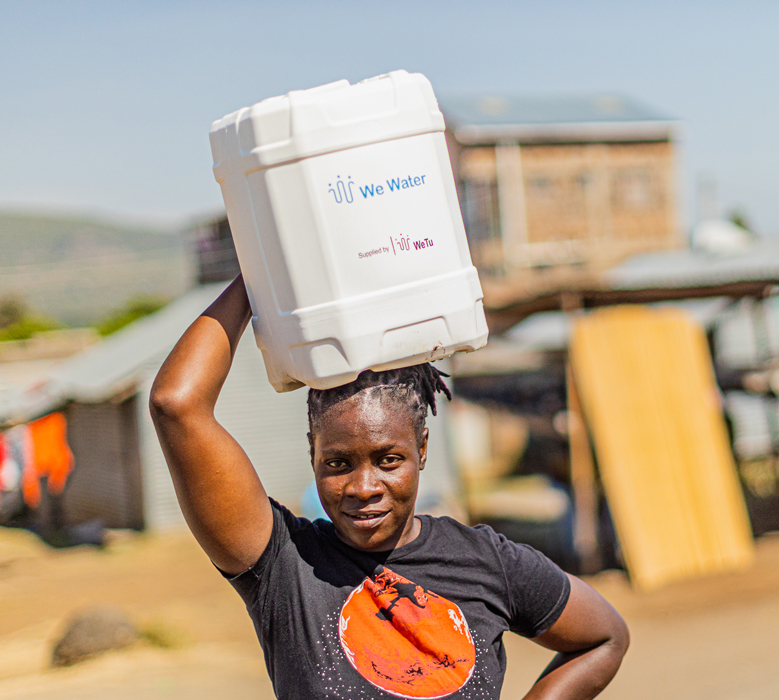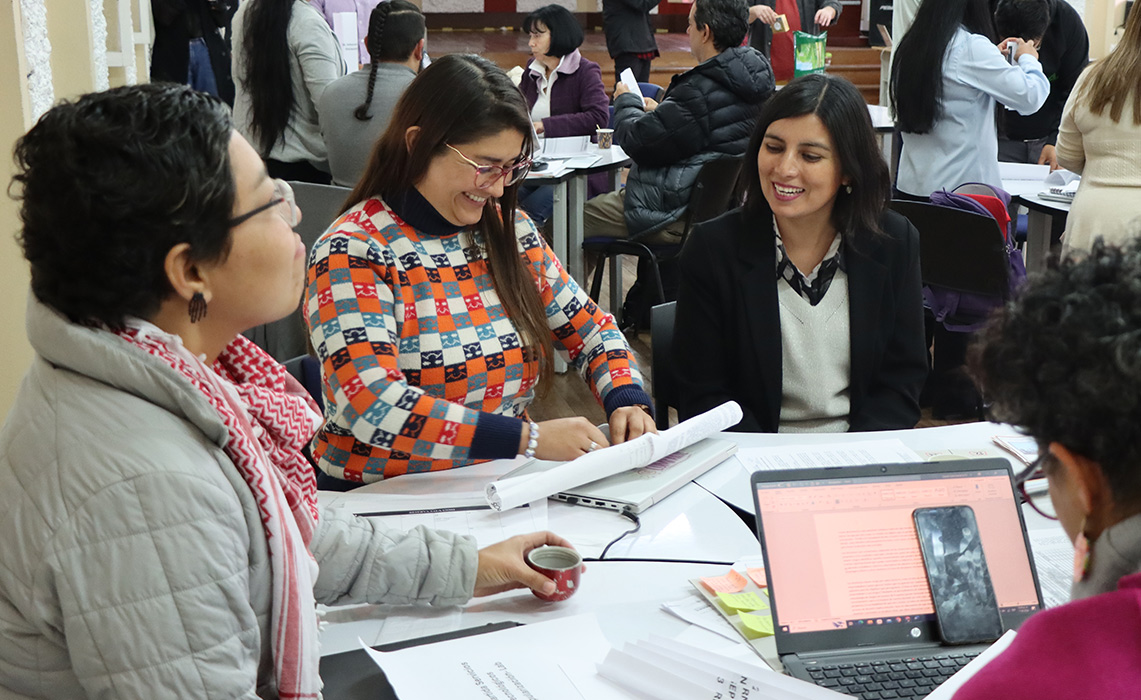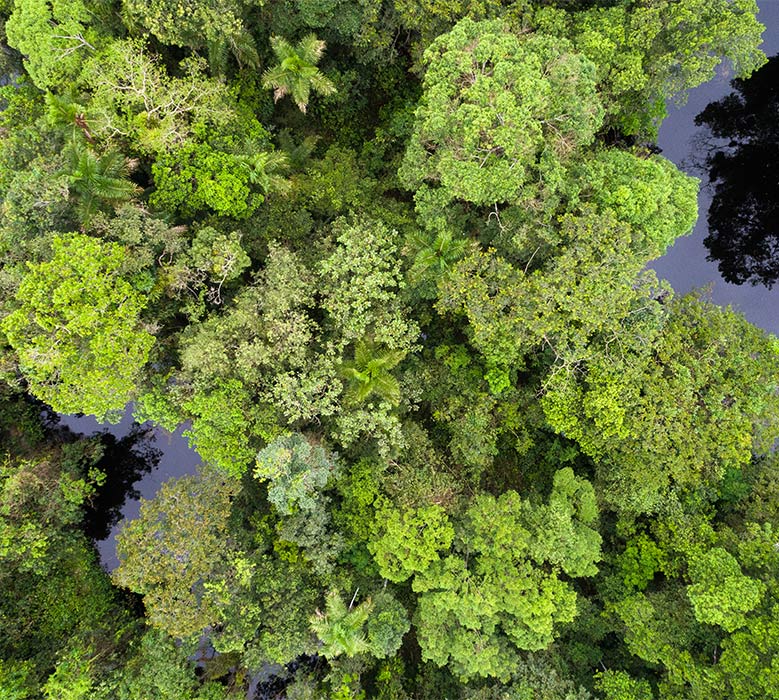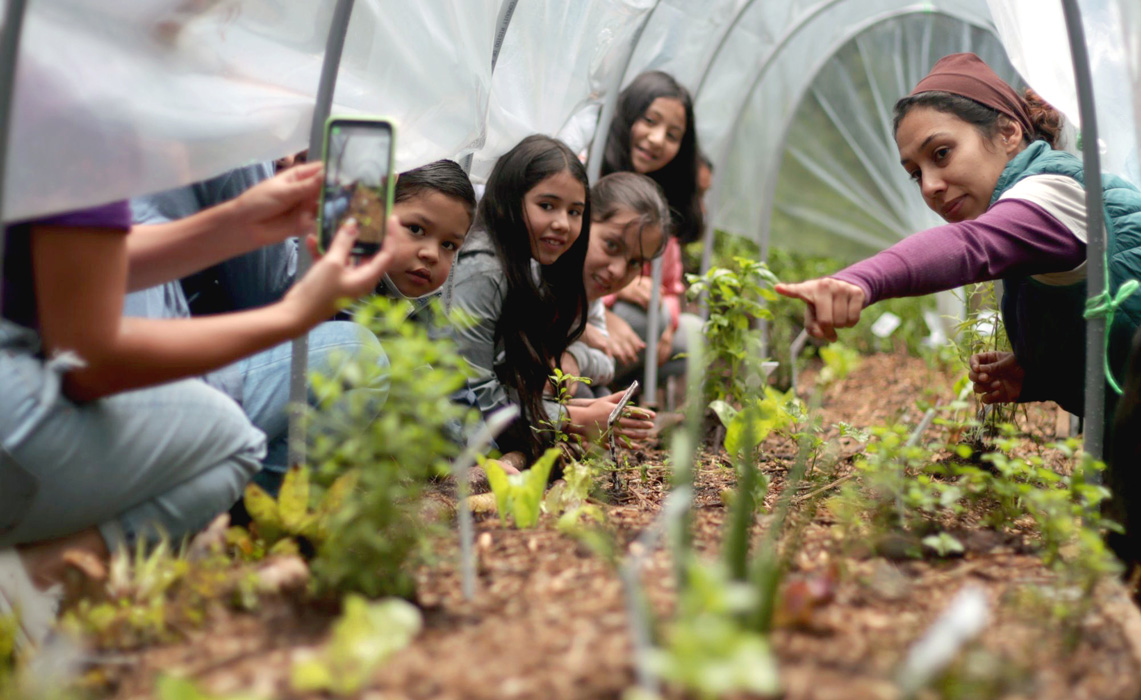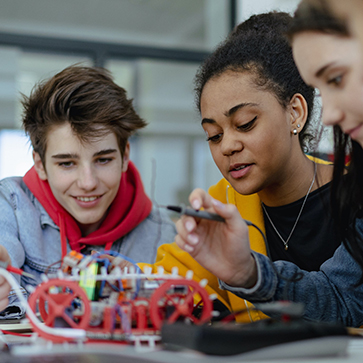Our working areas
In our working areas of Education, Social Entrepreneurship and Arts & Culture, we work in an interdisciplinary way on perspectives and solutions to global challenges.
In our working areas of Education, Social Entrepreneurship and
Arts & Culture, we work in an interdisciplinary way on perspectives and solutions to global challenges.
Projects and initiatives
News
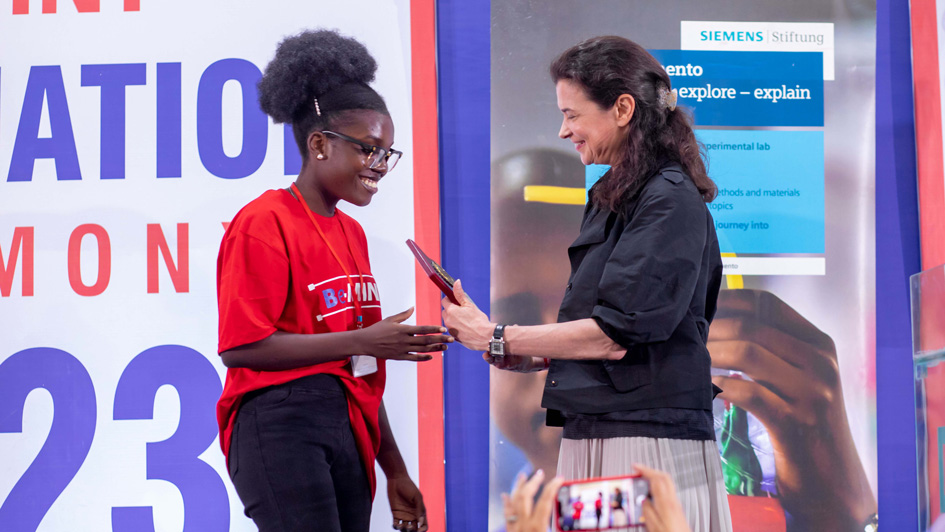
New makerspace inaugurated in Lagos to enhance career prospects for Nigerian youth
- A makerspace, part of the BeMINT_Nigeria training and internship program for high-school graduates was launched in Lagos. 400 participants from underserved communities receive entrepreneurial and digital skills training at the innovative space.
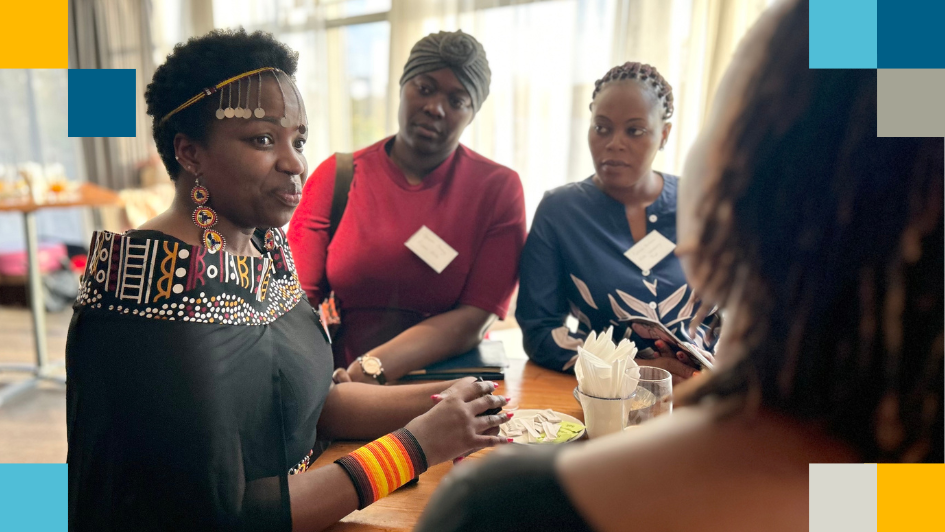
Webinar: “Women Empowerment: Social Entrepreneurship in Menstrual Hygiene and Female Health – African and European perspectives”
- GIZ and Siemens Stiftung invite you to a webinar on our new "Academy for Impact" learning portal. The webinar will showcase female social entrepreneurs from Africa and Europe innovating in menstrual health and present recent research.
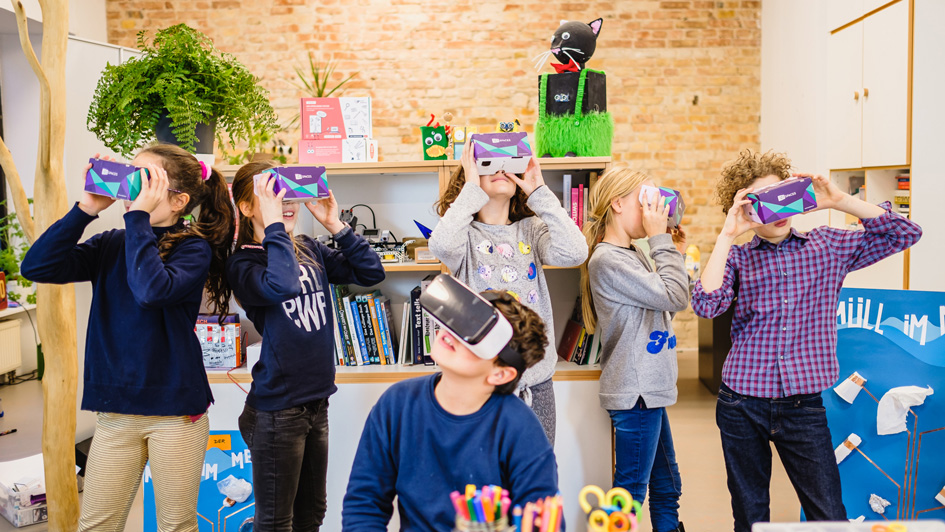
Gateway to nurturing future competencies for teachers and students: STEAM Hub Siemensstadt Square, Berlin
- STEAM Hub Siemensstadt Square, Berlin offers a wide range of innovative educational programs for a rapidly changing world.
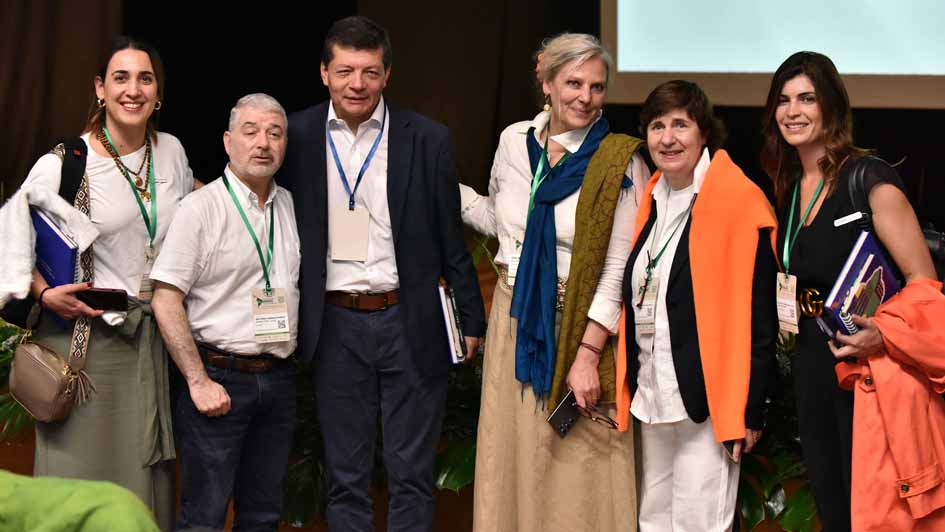
Declaration of Santiago de Cali: Shaping the future of education through diversity, digitalization and sustainability
- From November 12-14 the members of the Red STEM Latin America network met in Cali, Colombia to develop the roadmap to foster STEM education for innovation. They signed the Cali Declation to create the pathway to transform education quality in the region.
Our competence centers
In our working areas of Education, Social Entrepreneurship and Arts & Culture, we work in an interdisciplinary way on perspectives and solutions to global challenges.
In our competence centers Education, Social Entrepreneurship and
Culture, we work in an interdisciplinary way on perspectives and solutions to global challenges.
Projects and initiatives
Our projects are developed together with partners worldwide. International networks come together to form ecosystems for sustainable social development.
News

New makerspace inaugurated in Lagos to enhance career prospects for Nigerian youth
- A makerspace, part of the BeMINT_Nigeria training and internship program for high-school graduates was launched in Lagos. 400 participants from underserved communities receive entrepreneurial and digital skills training at the innovative space.

Webinar: “Women Empowerment: Social Entrepreneurship in Menstrual Hygiene and Female Health – African and European perspectives”
- GIZ and Siemens Stiftung invite you to a webinar on our new "Academy for Impact" learning portal. The webinar will showcase female social entrepreneurs from Africa and Europe innovating in menstrual health and present recent research.

Gateway to nurturing future competencies for teachers and students: STEAM Hub Siemensstadt Square, Berlin
- STEAM Hub Siemensstadt Square, Berlin offers a wide range of innovative educational programs for a rapidly changing world.

Declaration of Santiago de Cali: Shaping the future of education through diversity, digitalization and sustainability
- From November 12-14 the members of the Red STEM Latin America network met in Cali, Colombia to develop the roadmap to foster STEM education for innovation. They signed the Cali Declation to create the pathway to transform education quality in the region.
Essential Services
© WeTu/Siemens Stiftung / Anthony Ochieng
Essential Services
© Siemens Stiftung / Pontifícia Universidad Católica de Valparaíso
Digitality
© iStock.com/insta_photos
Digitality
© iStock.com / golero
Climate
© iStock.com / FG Trade
Climate
Courtesy: Vamos a Sembrar, Costa Rica / Photo: Wilson Méndez



